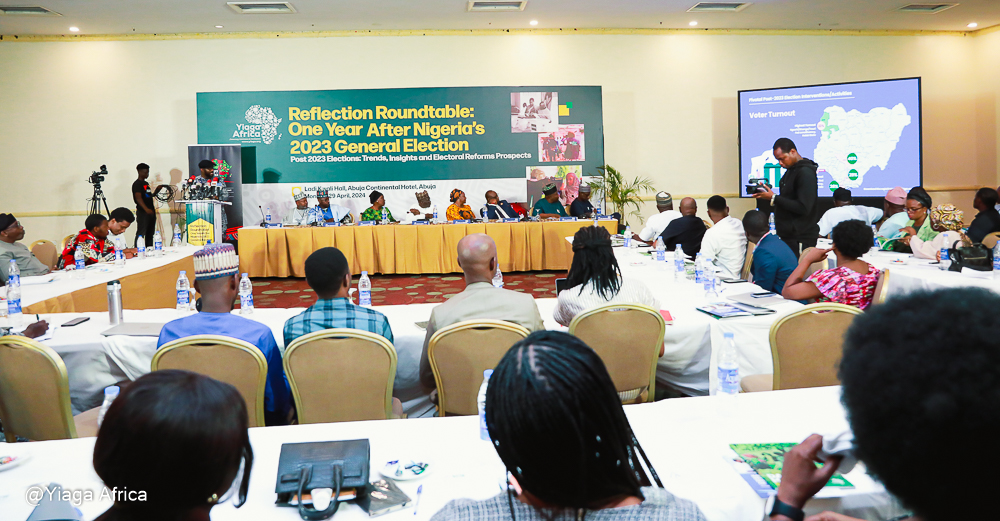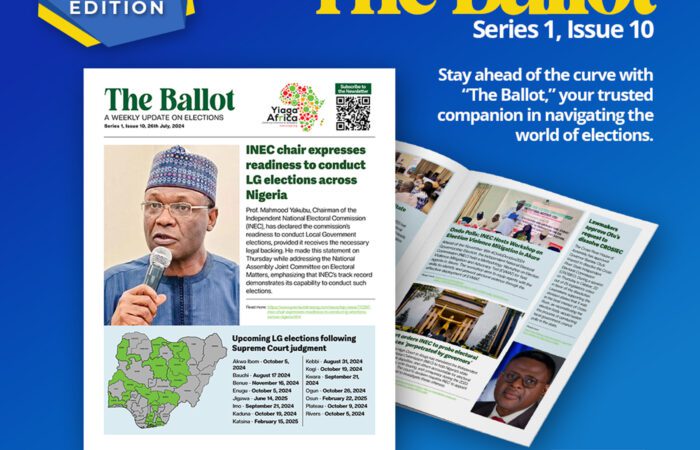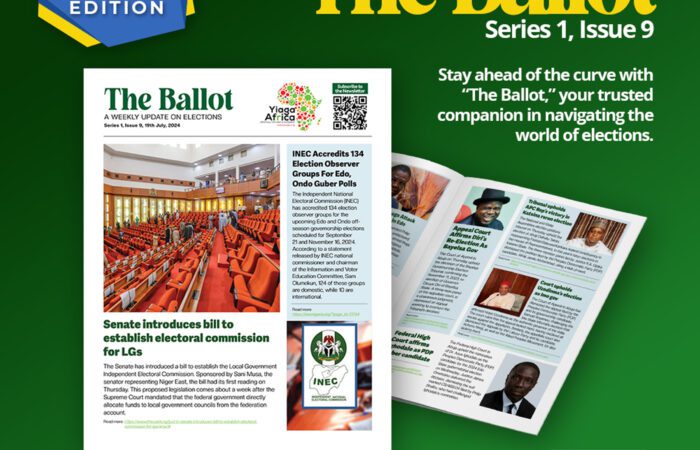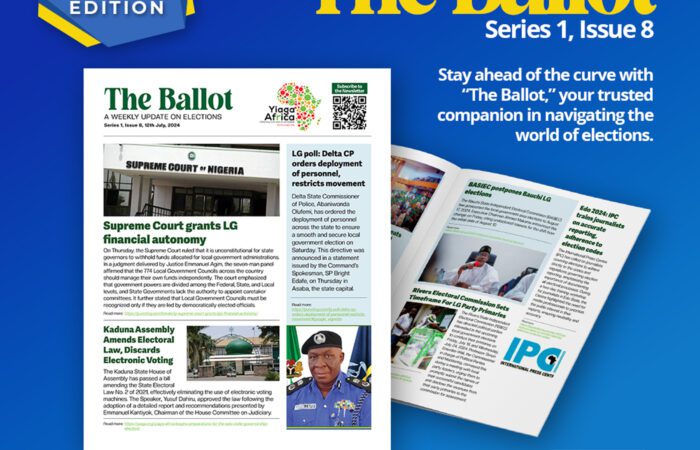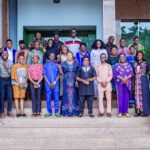On Monday, Yiaga Africa convened electoral stakeholders in Nigeria to a reflection roundtable meeting to review the nation’s electoral process one year after the conclusion of the 2023 general elections. The roundtable meeting, which was timed to coincide with the first anniversary of the general elections that has produced a new federal government, 18 new state governors and new federal and state legislatures, was aimed at assessing if there have been any efforts by relevant stakeholders to improve on the lapses noted during the elections.
The stakeholders present at the roundtable meeting included civil society organisations, development partners, legislators, government officials, INEC officials, security agencies, members of the diplomatic corps and the media. The discussion among these stakeholders included proposing enhancements to Nigeria’s electoral process.
In her welcome remarks, Cynthia Mbamalu, Yiaga Africa’s Director of Programs highlighted that Nigeria’s election is probably one of the most discussed and popular elections within the region, as evidenced by how it became a major trending issue on social media.
“However, the fact our elections are popular, attracting both regional and international attention, has not translated to elections meeting the expectations of citizens.”
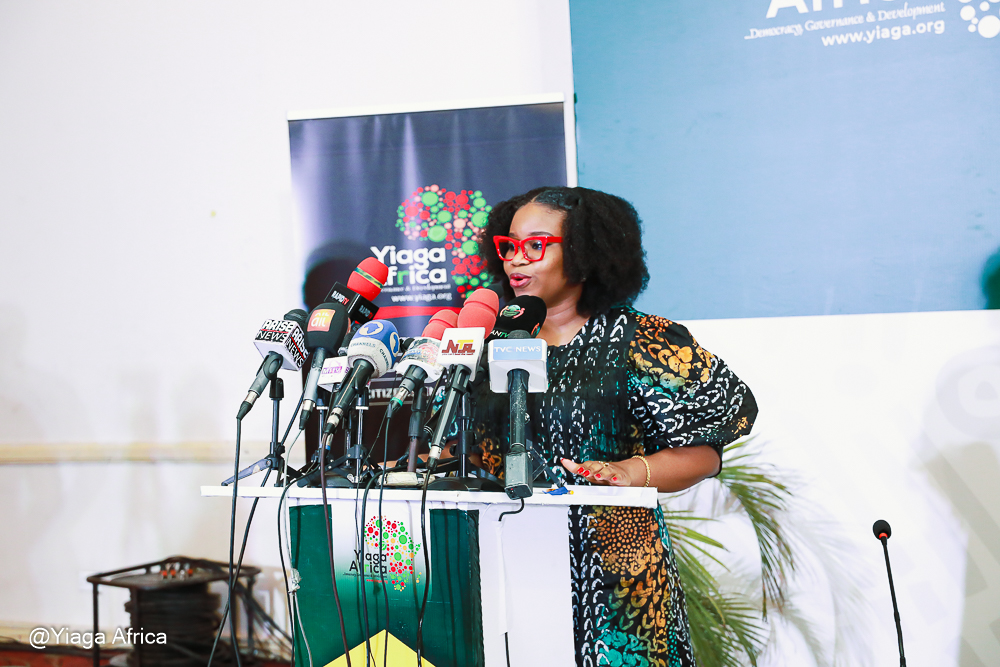
“This is why we need to reflect. Reflection is an important feature in any system. Today, we are inviting us all as leaders to reflect on the lessons from the 2023 elections and pathways to build a better system ahead of the 2027 elections,” she concluded.
On his part, Yiaga Board Chair, Dr Hussain Abdu addressed institutional independence, noting that the perceived capture of the election management body through partisan appointments undermines its integrity.
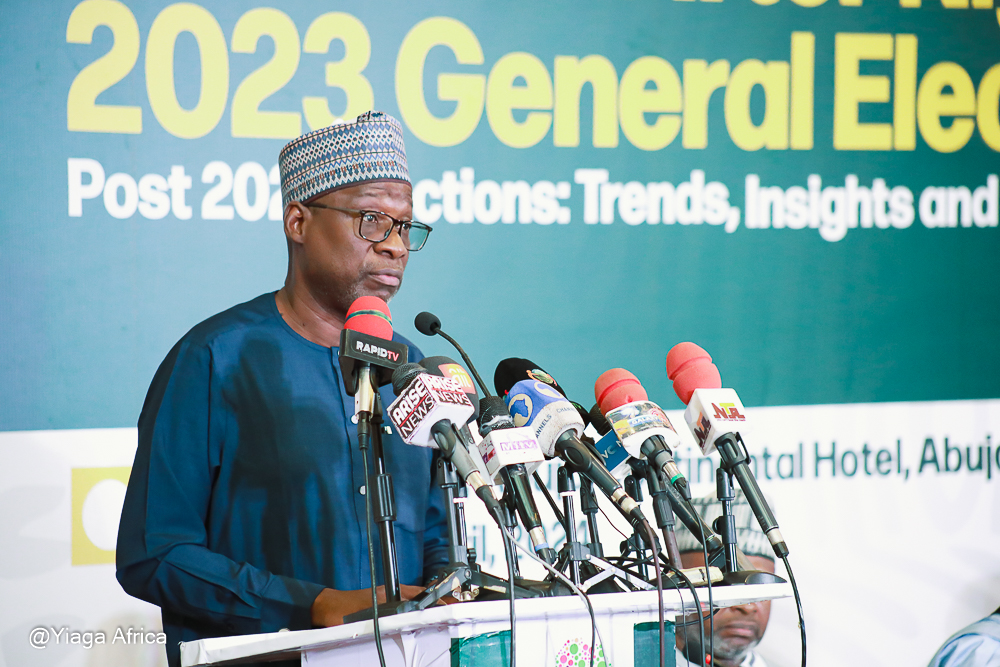

He added that the obstruction of legal processes and the tampering with electoral evidence were unacceptable and called on the judiciary and security agencies to protect the sanctity of electoral materials and the legal rights of all stakeholders to seek justice.
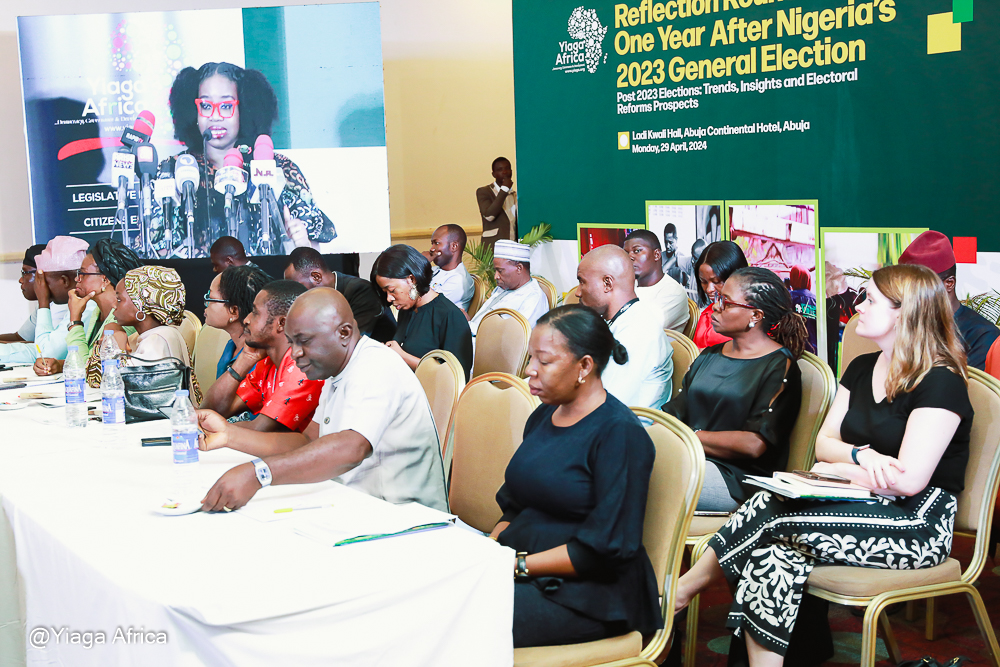

Also speaking at the event, Yiaga Africa’s Executive Director, Samson Itodo emphasised the need for trust to be rebuilt in Nigeria’s electoral process following the 2023 general elections.
“Trust in electoral processes is the bedrock of democratic legitimacy, this is why Yiaga Africa is calling for greater transparency, and accountability for all election stakeholders. We acknowledge the technological strides made by INEC, particularly with the BVAS.
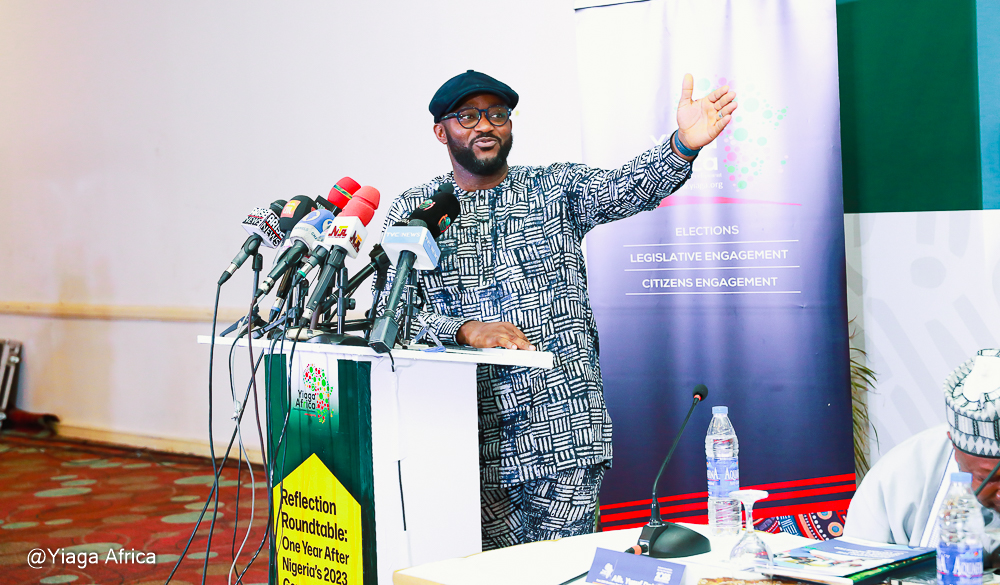

“But we encourage INEC to continue to strive for greater transparency and regular public engagement, to rebuild and enhance the public trust,” he added.
In his keynote address, IPAC Chairman, Yusuf Mamman Dantalle called for the amendment to the 1999 Constitution on the appointment of the INEC chairman.
“Appointment of INEC Chairman, National Commissioners and Resident Electoral Commissioners will move the powers of appointment from the President to another independent body subject to confirmation by the Senate,” he said.
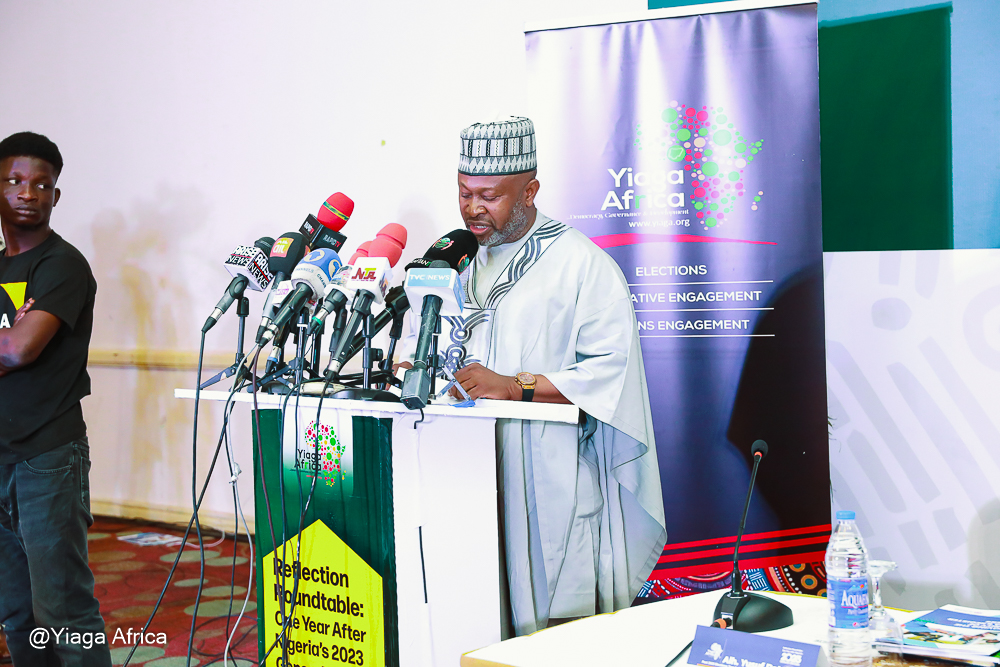

“It will guarantee neutrality, impartiality and independence of the Chairman and Resident Electoral Commissioners in discharging their Constitutional duties.”
In his remarks, Senator Sharafadeen Ali, the Chairman, Senate Committee on Electoral Matters, said that the 10th National Assembly was poised to conduct a critical assessment on INEC to constitute a significant part of the reform it was undertaking.
“We are committed to engage political parties and INEC, so as to achieve the conduct of free, fair and credible elections which is what our democracy at this stage truly deserves,” he said.
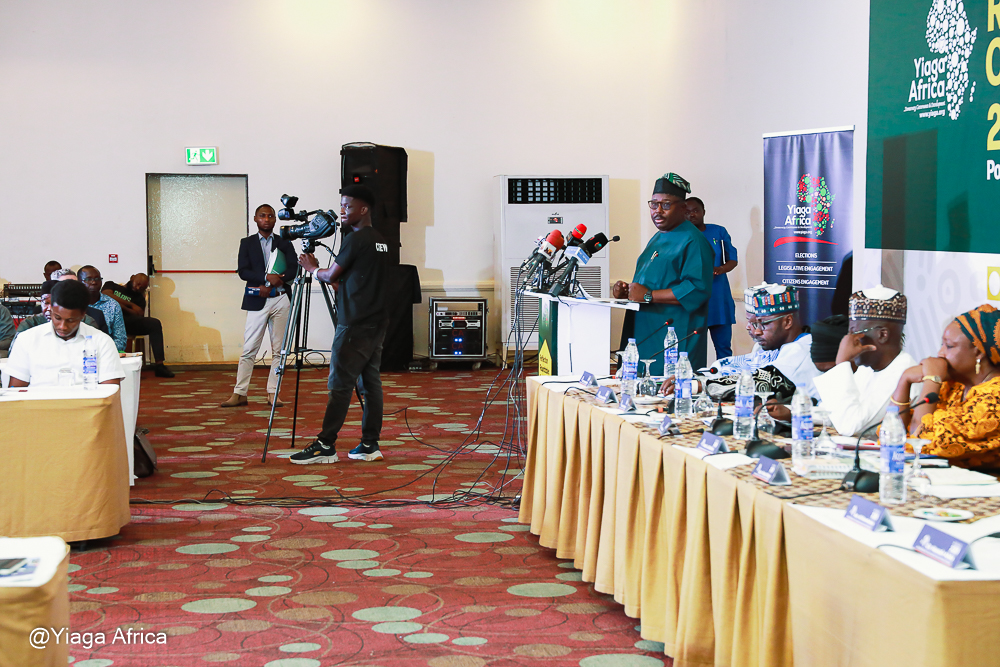

There was also a panel conversation on the trends, insights and prospects for electoral reform arising from the post-2023 Elections with the panelists drawn from past and current INEC officials, political parties and civil society.
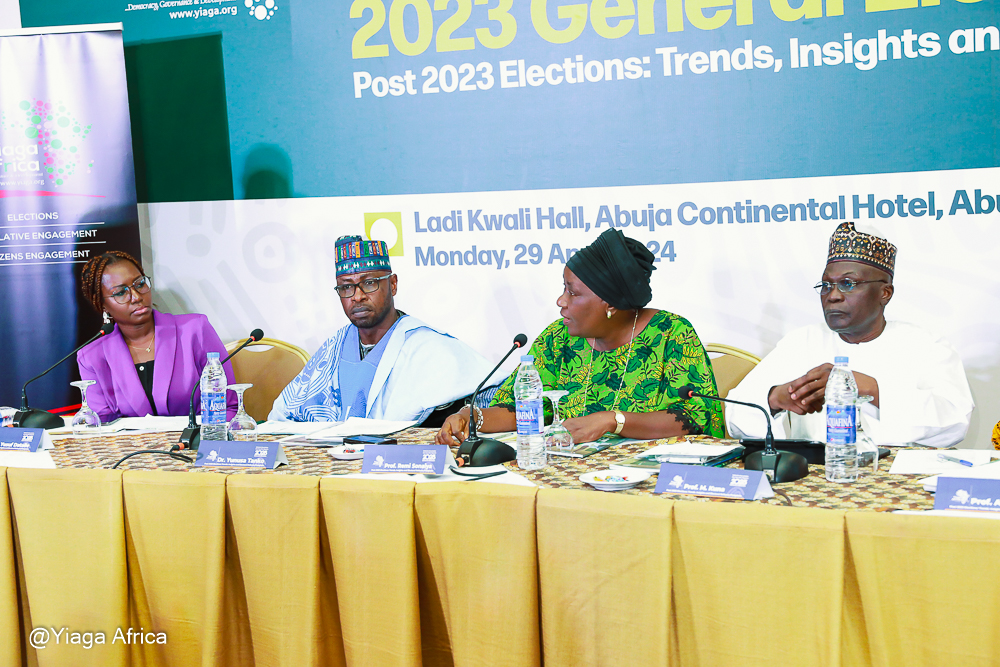

A high point of the reflection roundtable was the presentation of a report from Yiaga Africa titled, “Nigeria’s Electoral Process: One Year after the 2023 General Election,” which examines the developments since last year’s elections to see if there have been any improvements, and any efforts at improving it.
A key highlight of the report is its noting the failure of the administration of President Bola Tinubu to declare its stance on electoral reform.
“There is a public expectation that the President would present a definitive electoral reform agenda to restore trust in the process Yiaga Africa called on the Tinubu-led administration to articulate and implement a definitive electoral reform agenda for Nigeria, adding that the commitment of the Presidency to support and assent to legislative efforts to reform the electoral framework is critical to restoring public trust,” the report noted.
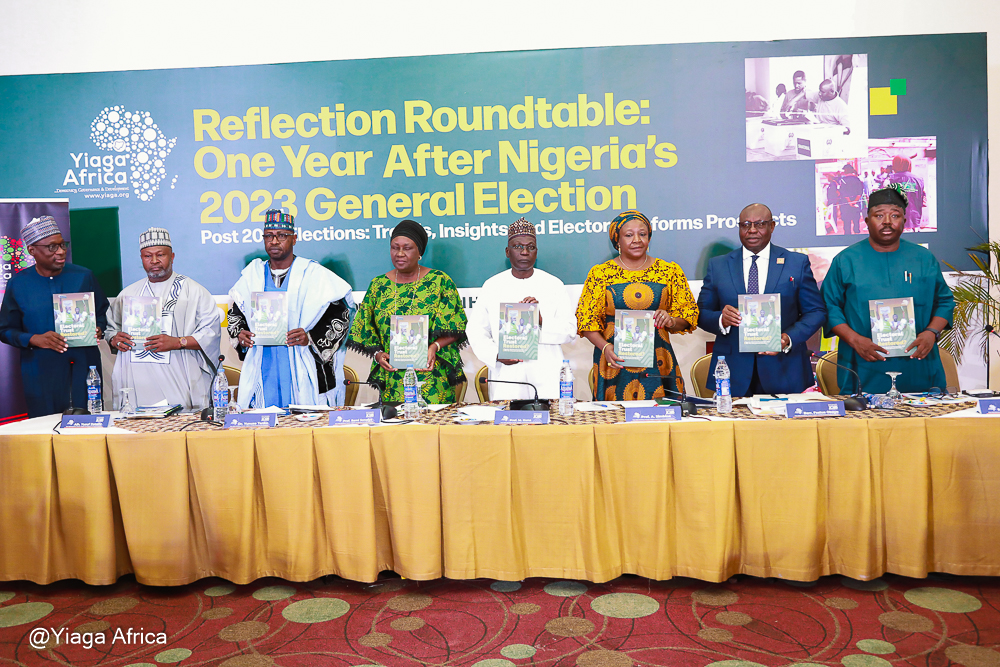

The report also highlighted legal inconsistencies and conflicting judgements regarding post-election petitions, which have created confusion.
“Yiaga Africa acknowledges the importance of judicial pronouncements in shaping electoral jurisprudence…..The judiciary must conduct an introspective audit to rectify the inconsistencies and legal discrepancies that have contributed to a decline in judicial trust among the Nigerian people,” the report said.
The report can be downloaded here.

